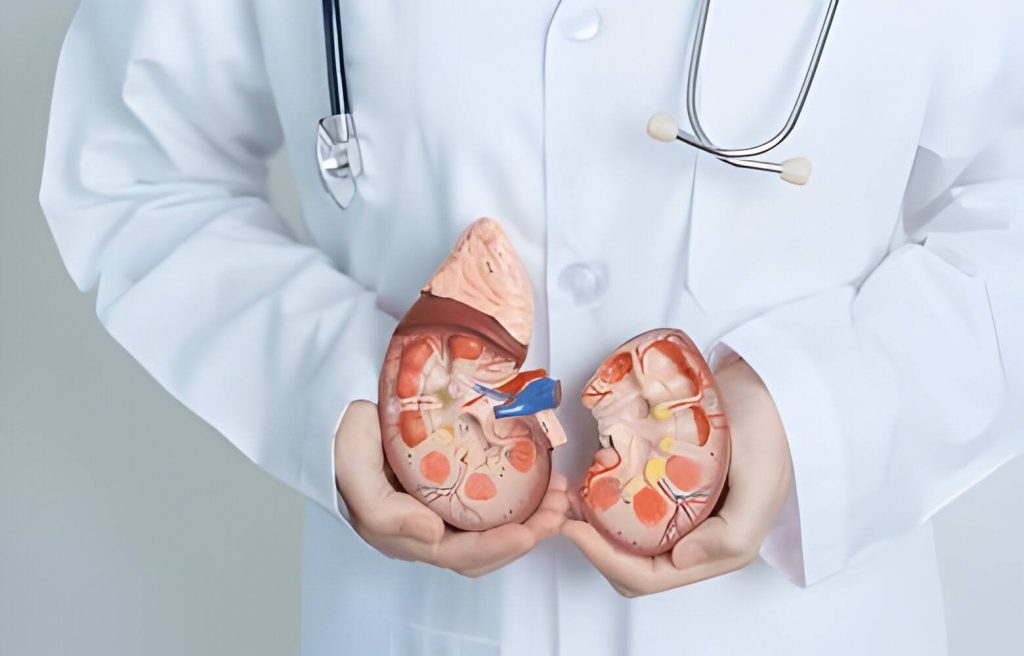

Kidney failure, also known as renal failure, occurs when the kidneys lose their ability to filter waste products from the blood sufficiently. When this happens, harmful levels of waste may accumulate, and the chemical makeup of the blood may get out of balance. Kidney failure can be either acute (sudden) or chronic (long-term).
Acute Kidney Failure
Acute kidney failure occurs rapidly, often in response to an injury or a severe illness that affects blood flow to the kidneys, damage from medications, or direct harm to the kidneys themselves. Common causes include:- Sudden reduction in blood flow to the kidneys due to severe injury, illness, or surgery.
- Damage from certain medications, toxins, or infections.
- Blockage of urine flow due to large kidney stones, tumors, or an enlarged prostate.
Chronic Kidney Disease (CKD)
Chronic kidney disease develops over many years and is most commonly due to high blood pressure or diabetes, which gradually harm the kidneys’ ability to function properly. CKD is often progressive, meaning it can lead to end-stage kidney failure, which is fatal without artificial filtering (dialysis) or a kidney transplant.Symptoms
The symptoms of kidney failure can vary depending on the type and stage of the failure, and may include:- Nausea and vomiting
- Loss of appetite
- Fatigue and weakness
- Sleep problems
- Changes in urine output
- Decreased mental sharpness
- Muscle twitches and cramps
- Swelling of feet and ankles
- Persistent itching
- Chest pain, if fluid builds up around the lining of the heart
- Shortness of breath, if fluid accumulates in the lungs
- High blood pressure (hypertension) that’s difficult to control
Diagnosis:
Diagnosis of kidney failure involves several tests, including:- Blood tests, such as Serum Creatinine and Blood Urea Nitrogen (BUN), to measure the levels of waste products in your blood.
- Urine tests, checking for abnormalities that suggest kidney failure.
- Imaging tests, such as ultrasound or CT scans, to assess the kidneys’ structure and size.
- Kidney biopsy, which involves taking a sample of kidney tissue for testing.
Treatment:
Treatment for kidney failure depends on the severity and cause of the kidney damage. Options include:- Dialysis: This procedure artificially removes waste products and excess fluid from the blood when the kidneys can no longer perform this function.
- Kidney transplant: Involves replacing the diseased kidneys with a healthy kidney from a donor.
- Treating the cause: Management of underlying conditions such as diabetes and high blood pressure.
- Supportive treatments: Medications to control signs and symptoms, reduce complications, and slow the progression of the disease. These can include medications to lower cholesterol, treat anemia, relieve swelling, protect your bones, and lower blood pressure.
